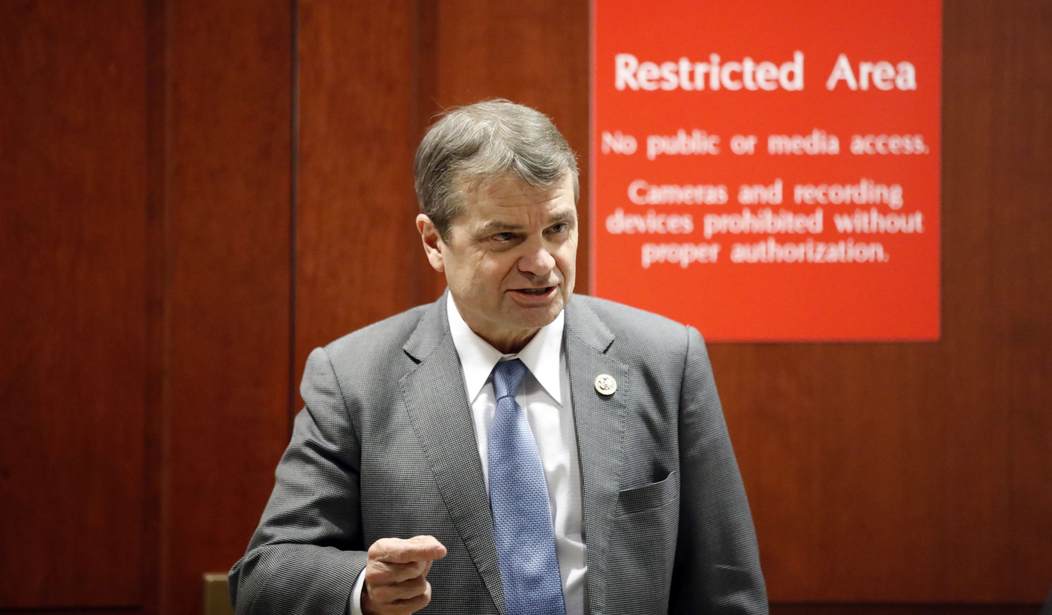The public’s trust in the federal government has been on the decline for a couple of decades now, but the trend has really accelerated under the Biden administration. A Gallup survey last October revealed that the public’s faith in all three branches of the government had fallen below fifty percent for the first time, with trust in the executive branch dipping to just 43%. (Perhaps unsurprisingly, 87% of Democrats said they still trusted the presidency with one of their guys in the Oval Office.) Now there is someone in Congress who is proposing legislation to address this endemic lack of trust, and to my great surprise, it’s a Democrat. As Courtney Buble reports at Government Executive, Mike Quigley of Illinois has introduced a pair of bills that aim to increase White House transparency and restore the faith of the American people.
A Democratic congressman is hoping to restore the public’s trust in the federal government with proposed legislation that would make the White House more transparent.
The Pew Research Center said over the summer that low public trust in the federal government has lasted for nearly two decades. “Repairing trust in the executive branch can begin with enhanced transparency and accountability,” said Rep. Mike Quigley, D-Ill., founder of the Congressional Transparency Caucus, upon reintroduction of two bills last week. “My legislation will help meet that need.”
One bill would require every presidential administration to publicly release visitors logs from the White House or any locations where the president and vice president regularly do official business, with certain exceptions such as for national security purposes.
As noted, the first bill would require the public release of visitor logs for the White House and “any locations where the president and vice president regularly do official business.” (We’ll circle back to that one in a moment.) The second bill would order the retention and eventual release of “non-official electronic messaging accounts.”
These are both touchy areas for the White House and the media. Presidents of both parties have been far too secretive about visitor logs. Trump did away with the publication of visitor logs in all cases, both at the White House and at Mar-a-Lago. Biden’s administration has been making the White House logs available but dubiously insists that no such records exist for his mansions in Delaware. This is of critical concern in terms of transparency since Joe Biden is setting records for the amount of time he spends in Delaware rather than on the job in Washington. Even if this law is passed, do you honestly think that Joe Biden will go along with a rule saying he has to maintain and publish those logs for his homes? Do you believe Donald Trump would open up the vaults of Mar-a-Lago were he to return to office? Color me dubious.
The proposed law involving “non-official electronic messaging accounts” opens up a different can of worms that nobody has addressed in a sufficient fashion thus far. Back in the “good old days,” (assuming you think there ever were any) communications were delivered and stored on paper. If someone was going to try to hide any nefarious activity, they would need to literally burn the records and hope that nobody else had made a copy.
But now almost everything is created, transmitted, and published digitally. There are countless records that have been created that have never been printed out on paper. Those records can disappear with a click of a mouse. (Or, in the case of Hillary Clinton, with some BleachBit and a hammer.) Digital forensic techniques exist that can sometimes recover some of those records, but that depends on investigators being able to get their hands on the storage devices in most cases. Unless somebody blows the whistle, many records may simply vanish without the public or the media suspecting that they ever existed.
Those scenarios primarily apply to emails and “documents” published on web servers. But there is a lot more going on behind the scenes that only shows up in people’s Snapchat accounts, Twitter direct messages, or instant messaging logs on their phones. The amount of “throw-away” communications taking place is surely far more vast than we can even imagine.
I find myself wondering if technology hasn’t taken us to a place where official government record retention and transparency may no longer be possible. I applaud Mike Quigley for making the attempt, but I’m not sure he’ll be able to establish a system that any of us should feel very confident in. And yes… that applies to presidents and other politicians of both parties.








Join the conversation as a VIP Member